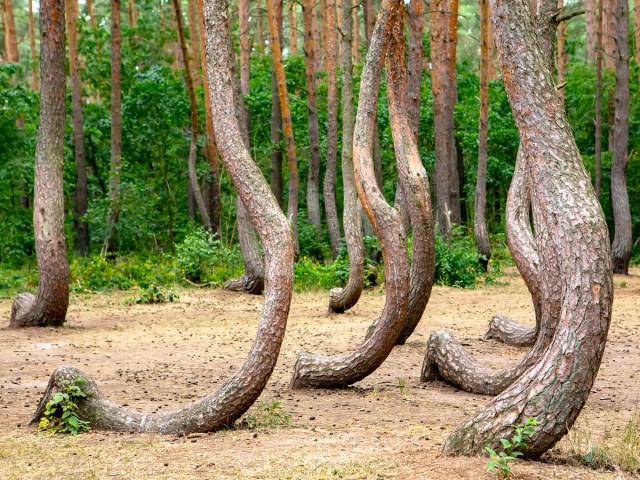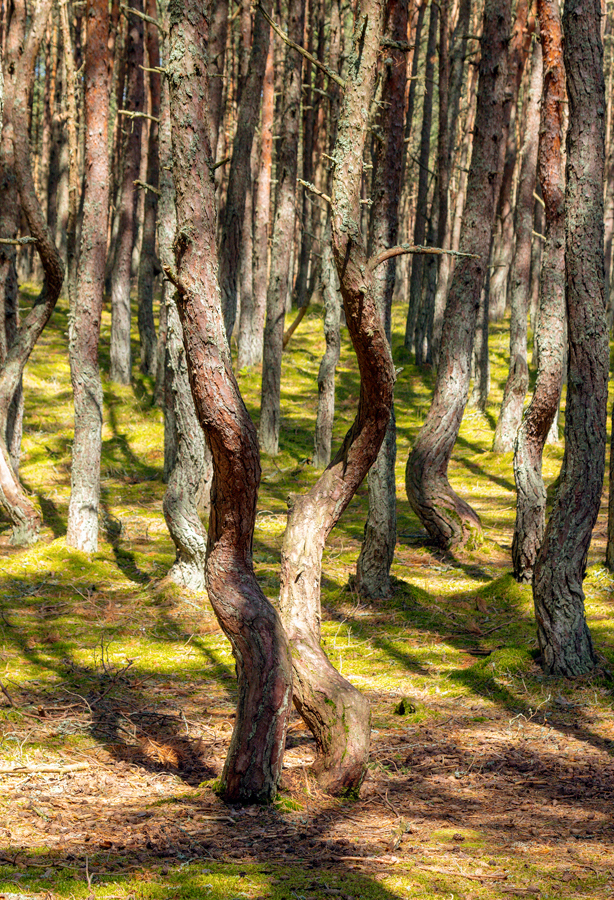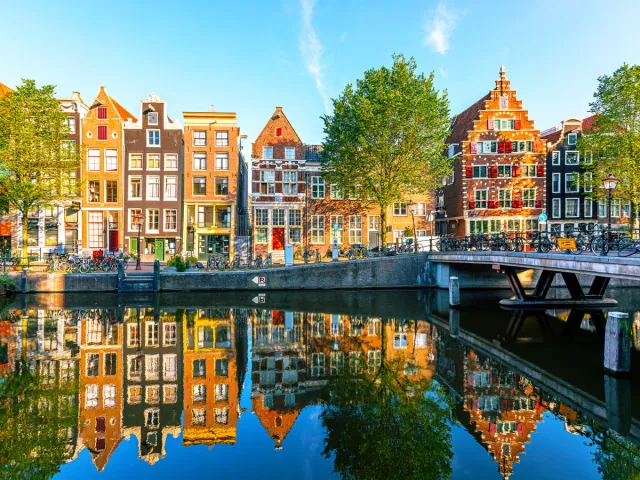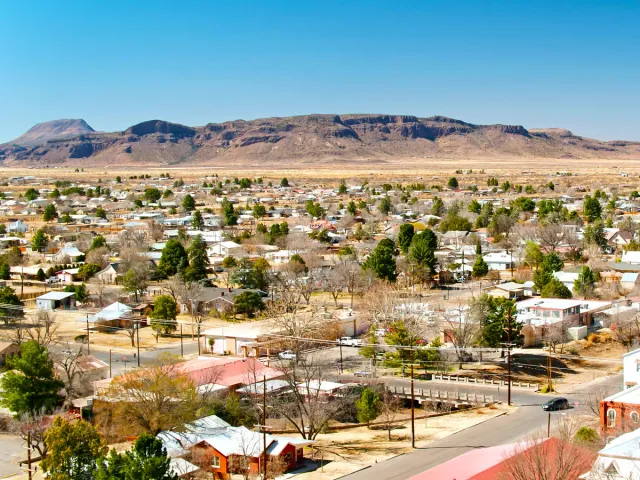Forests hold an air of mystery, enchantment, and even darkness. We venture into the woods not only to take in their beauty, but also to feel a stronger connection to nature. But some forests hold more than just unique natural beauty — they are home to mysteries and geological oddities that scientists are still pondering. One such place is Krzywy Las, the “Crooked Forest” of Poland, home to nearly 400 pine trees with trunks bent at bizarre angles. And even more strangely, every single one of them points north. Dive into the mystery of Poland’s “Crooked Forest.”
Theories Take Root

Scientists still aren’t sure what causes the phenomenon in Krzywy Las, where tree trunks in a section of the forest bend at 90-degree angles close to the ground and reach upward in a strange “J” shape. Nonetheless, several theories have attempted to explain it. Some believe that particularly heavy snowfall weighed the trees down one season or that a genetic mutation stunted their early growth, though that hardly accounts for the uniformity of each and every trunk pointing in the same direction.
Others have suggested that farmers are responsible, as they believed the unique curvature of the trunks would make these pines better suited to furniture and shipbuilding, but no one is sure exactly what technique might have been employed to produce such an effect. The latter theory appears at first glance to be the most plausible, as only one section of the forest has these oddly shaped trunks — the trees surrounding it are all normal.
Whichever school of thought you subscribe to, it’s likely we’ll never know for sure. Though the trees were planted around a century ago in the 1920s and 1930s, the mystery persists in part because the nearby town of Gryfino was almost entirely destroyed during World War II. Conversely, this might also lend credence to the farmer theory — once war broke out, farmers would have had more urgent matters to attend to than making odd furniture. If people were indeed responsible for the curvature, they’re no longer around to take credit for their work.
Other Forests, Other Mysteries

Anyone hoping to solve this mystery can at least look to similar growths across the world, like the Native American marker trees or the circus trees in Gilroy, California — both of which were intentionally manipulated.
Or consider the Kaliningrad Oblast in Russia, also known as the “Dancing Forest,” which is home to trunks that are contorted into spirals and rings — the cause of which is likewise unknown. Located on the Curonian Spit, the Dancing Forest is the closest analogue to Krzywy Las — and not just because of geography. It’s also a relatively recent phenomenon, with some dating the unique trees back to 1961 and many attributing their strange shape to the paranormal.
As with Krzywy Las, however, the true cause may be more mundane. Rhyacionia buoliana, also known as the pine shoot moth, feeds on pine in its larva and caterpillar phases. It’s theorized that caterpillars in the forest damaged the trees in their developmental phase by eating their apical buds, which stunted their growth and caused these off-kilter shapes.
Less mysterious but no less visually striking are the world’s many drunken forests, which live up to their names in ways both good and bad. Also called drunken trees and tilted trees, they stand at odd angles most often caused by the gradual thawing of permafrost and have seen their numbers increase due to climate change. (Al Gore even mentions them in his 2006 documentary film An Inconvenient Truth.) When ground that used to be permanently frozen begins to thaw and even melt, the trees growing from that soil no longer have a solid base. Alaska, Canada, and Russia are home to many of the world’s drunken forests.
More from our network
Daily Passport is part of Optimism, which publishes content that uplifts, informs, and inspires.























